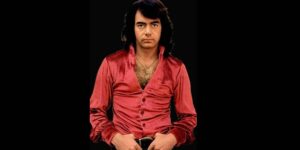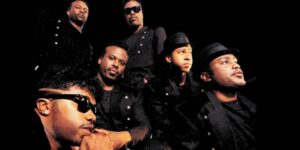The 1990s was a transformative period for the music industry, with the rise of alternative rock, grunge, and Britpop changing the musical landscape forever. Iconic bands like Foo Fighters, Bush, and Oasis were among the pioneers of this new sound, and their music continues to influence generations of fans and musicians alike. In this article, we’ll delve into the guitar heaven of the 90’s output of these iconic rock bands, exploring their signature sounds, songwriting styles, and guitar work that defined their era.
Foo Fighters: The Soundtrack to a Generation
Foo Fighters, formed by Nirvana’s drummer Dave Grohl, rose to fame with their debut self-titled album in 1995. The band’s music was characterized by Grohl’s powerful vocals, melodic songwriting, and crunching guitar riffs. Songs like “Everlong” and “My Hero” showcased the band’s ability to craft anthemic, arena-ready rock songs with a focus on catchy hooks and memorable guitar parts.
Grohl’s guitar playing style was a key element in shaping Foo Fighters’ sound. He drew inspiration from classic rock and punk influences, such as The Pixies, R.E.M., and Queen. His guitar work on the band’s early albums was characterized by simple, yet effective, chord progressions, and a keen sense of dynamics, creating a sense of tension and release in their songs.
Bush: The Melodic Hard Rockers
Bush, formed by Gavin Rossdale, was another British rock band that emerged in the 90’s, known for their melodic hard rock sound and soaring guitar hooks. Their 1994 debut album, “Sixteen Stone,” was a huge success, thanks in part to the hit single “Glycerin,” which featured a catchy, sing-along chorus and a memorable guitar riff.
Guitarist Nigel Pulsford was the primary songwriter and lead guitarist for Bush, and his playing style was heavily influenced by classic rock and heavy metal bands like Led Zeppelin and Black Sabbath. He employed a range of techniques, from pinch harmonics to legato playing, to create a distinctive, high-energy sound that was both heavy and melodic.
Oasis: The Britpop Trailblazers
Oasis, formed by Liam and Noel Gallagher, was a major force in the Britpop movement of the 90’s, known for their swaggering attitude, catchy songwriting, and guitar-driven sound. Noel Gallagher’s guitar playing was a key element in shaping Oasis’ sound, drawing inspiration from classic rock and psychedelic influences.
Noel’s guitar work on Oasis’ early albums, such as “Definitely Maybe” and “(What’s the Story) Morning Glory?”, was characterized by simple, yet effective, chord progressions and a focus on crafting memorable, sing-along guitar hooks. He employed a range of techniques, from strumming and picking to slide playing, to create a distinctive, anthemic sound that captured the hearts of millions.
Common Threads and Legacy
Despite their different styles and approaches, Foo Fighters, Bush, and Oasis shared certain common traits that defined their guitar-driven sound. Each band placed a strong emphasis on crafting catchy, memorable guitar hooks and riffs, which helped to set them apart from other bands of the era.
Their music also often featured a strong focus on melody and vocal harmonies, which added an extra layer of depth and texture to their sound. Additionally, each band’s guitarists drew inspiration from a range of classic rock and punk influences, which helped to shape their unique styles and approaches.
The guitar-driven sound of Foo Fighters, Bush, and Oasis has had a lasting impact on the music industry, influencing generations of rock bands and guitarists. Their music continues to be celebrated and emulated, and their legacy as guitar heroes remains unwavering.
Conclusion
The 1990’s was a pivotal period for rock music, marked by the rise of alternative rock, grunge, and Britpop. Iconic bands like Foo Fighters, Bush, and Oasis were among the pioneers of this new sound, and their music continues to inspire and influence fans and musicians alike.
Through their distinctive guitar playing styles, these bands were able to craft a unique sound that was both heavy and melodic, with a focus on catchy hooks and memorable guitar riffs. Their music continues to be celebrated and emulated, and their legacy as guitar heroes remains unwavering.
FAQs
Q: What were the main influences on Foo Fighters, Bush, and Oasis’ guitar playing styles?
A: Foo Fighters’ guitar work was influenced by classic rock and punk bands, while Bush’s guitarists drew inspiration from classic rock and heavy metal. Oasis’ guitar work was influenced by classic rock, psychedelia, and punk.
Q: What were some of the key guitar parts that defined Foo Fighters’ sound?
A: Songs like “Everlong” and “My Hero” featured crunching guitar riffs and anthemic choruses, while tracks like “Monkey Wrench” and “All My Life” showcased the band’s ability to craft more atmospheric and introspective guitar parts.
Q: How did Bush’s guitar work differ from that of Foo Fighters and Oasis?
A: Bush’s guitarists employed a range of techniques, from pinch harmonics to legato playing, to create a distinctive, high-energy sound that was both heavy and melodic.
Q: What was the impact of the Britpop movement on the music industry?
A: The Britpop movement had a significant impact on the music industry, helping to usher in a new era of guitar-driven rock music and paving the way for future generations of rock bands.
Q: Are Foo Fighters, Bush, and Oasis still active in the music industry?
A: Yes, Foo Fighters are still actively releasing new music and touring, while Bush is also still active, although they have been on hiatus in recent years. Oasis disbanded in 2009, but their music remains widely popular and influential.






